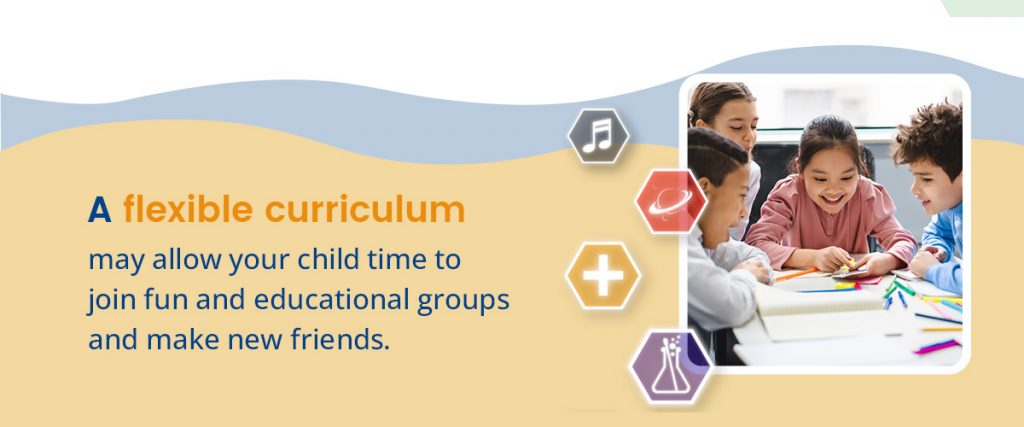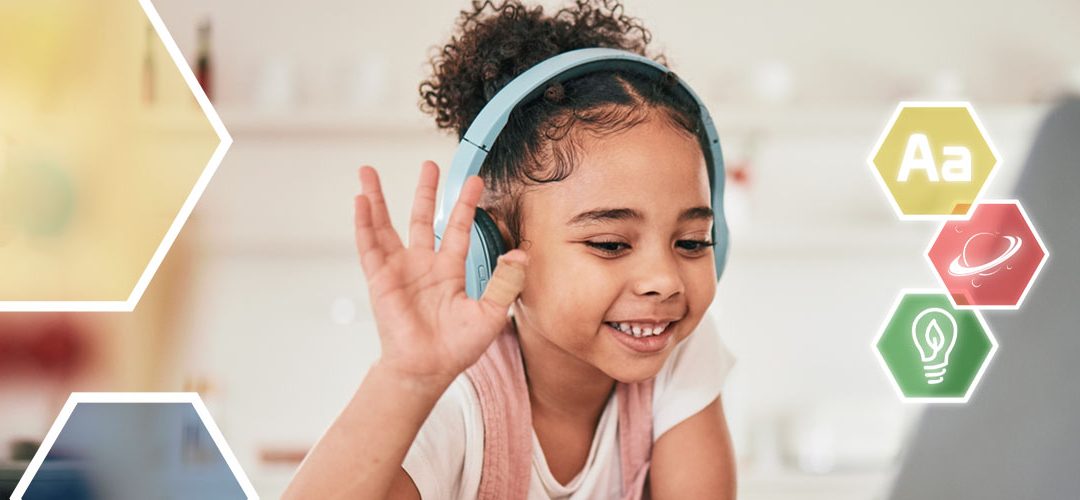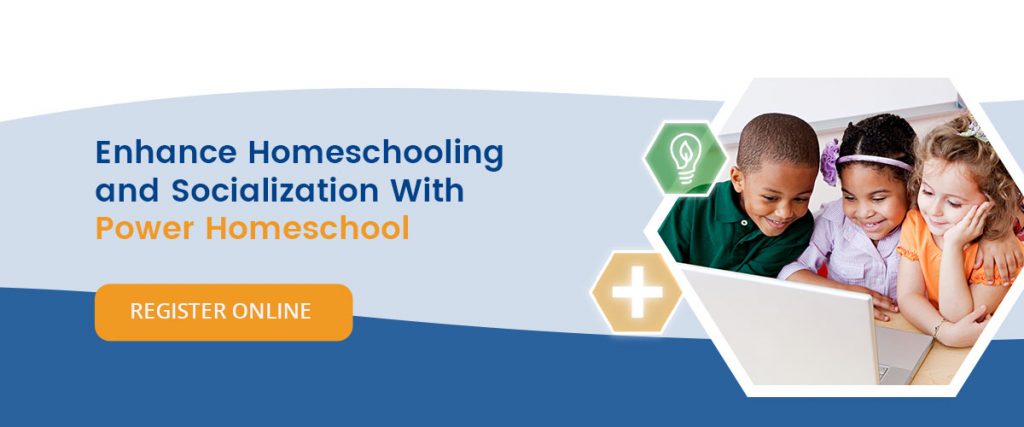It’s important for homeschooling parents to prioritize their child’s socialization as much as their academic success. Social skills are a valuable tool for interacting in everyday life and communicating in the work world. While there are some misconceptions about socialization in the homeschooling environment, learning in the home environment offers valuable opportunities for social interaction and skill development.
Explore the importance of socialization, how homeschooling impacts these skills and the top homeschool socialization tips.
Why Is Socialization Important for Students?
Socialization helps people navigate the real world. Here are the benefits of socialization for students:
- Developing social skills: Social interactions help students learn to listen, empathize, communicate and negotiate conflict.
- Encouraging Broader Connections: Socializing may create opportunities for students to interact with people of different backgrounds and cultures, helping them gain a broader understanding of others and build connections.
- Improving networking: Students adept at socializing may be able to build connections and enjoy job and internship opportunities.
- Promoting collaborative learning: Socialization in the learning environment allows children to interact with other learners and adults. This encourages problem-solving, leadership and teamwork.
How Does Homeschooling Affect Social Skills?
While some parents believe homeschooling doesn’t support socialization, homeschooling has valuable benefits for a child’s social skills. Let’s uncover the truths about homeschool learning and socialization backed by research compiled by the National Home Education Research Institute:
- Social awkwardness is not dependent on a child’s school: A child’s social skills are not always determined by whether they were homeschooled or attended an in-person school. In fact, homeschooled children may be exposed to more diverse social learning experiences due to interactions with other homeschooled students, parents and professionals. This may make them more at ease in social settings. Around 87% of peer-reviewed studies on social, psychological and emotional development discovered homeschooled students performing significantly better than those in traditional schools.
- Homeschoolers can socialize with a broader peer group: Homeschooling students often have a broader peer group and can interact with individuals of diverse backgrounds because they are more exposed to the real world than traditional students. This is possible due to their involvement in social and educational activities outside of their homes, such as field trips, sports, extracurricular clubs and co-op classes.
- Homeschoolers can be well-socialized: More experience socializing with different people empowers students and helps them feel motivated to support communities and succeed academically. They can also build confidence and self-esteem when there is less negative peer pressure. Studies even show that adults who were homeschooled are more politically tolerant than adults who attended public schools.
Social Benefits of Homeschooled Children
Homeschool learning programs can give homeschooled children social advantages:
- Less bullying and negative peer influences: Homeschooled children are typically surrounded by their parents and siblings in the learning environment. This lowers their chances of experiencing bullying, negative peer interactions and harmful influences that impact their learning experiences.
- More real-world social experiences: Through activities like field trips, co-ops and interactions with professionals, homeschooled children gain more experience engaging in conversations with various professionals and people from diverse backgrounds. This may help them communicate better in their future jobs and the real world.
- More time to pursue individual interests: Shorter school days and flexible homeschool programs give homeschooled students more time to learn what interests them and pursue hobbies. Spending time on hobbies enhances their skills, confidence and sense of identity.
- Improved parent-child bonding: One study shows that homeschooled students often have better parent-child relationships than students in traditional schools. Homeschooled children are often happier, more engaged and more satisfied with their learning experiences and environment. Parents and siblings can create positive personal bonds that are nurtured through education.
Homeschool Socialization Ideas
There are many ways to build your child’s social skills while homeschooling them. Here are five ways to improve socialization for your homeschooler.
1. Encourage Participation in Extracurricular Activities

Encourage your child to participate in extracurricular activities and clubs. A flexible curriculum may allow your child time to join fun and educational groups and make new friends. You can network with local homeschooling families or connect with nearby schools to ask if your child can join extracurricular activities.
Some examples of clubs your child can join include art groups, drama clubs, book clubs, sports teams, swimming classes, dance clubs and photography clubs.
2. Look Into Homeschool Support Groups
You may be able to find homeschool support groups for local homeschooling parents to connect, share advice and ask questions. You can also use these platforms to suggest activities to get students together for educational experiences.
For example, parents may arrange field trips to local museums, art galleries, nature centers, zoos and other organizations to give students an immersive learning experience while encouraging socialization with peers, parents and professionals. Sometimes, these trips may involve whole families, creating opportunities for children to interact with babies, toddlers, preteens, teenagers and adults.
3. Do Special Homeschool Celebrations
Encourage your child to celebrate their accomplishments with their peers. This allows children time to get to know one another and feel proud of their achievements. Try to coordinate with parents from the homeschool support group to celebrate when children reach milestones like finishing exams, completing a grade or learning lengthy topics.
Some celebration ideas include family picnics, apple picking, masquerade balls or dress-up fairs. Other fun-focused events include Thanksgiving potlucks, cultural fairs, birthday celebrations and award ceremonies where parents create awards to present to their children.
4. Foster Independence
Students may improve their social skills and provide more input into activities when you are mindful of when parental supervision is necessary. This is important as your child grows into a young adult, so give them time to go out with friends and work part-time jobs. These opportunities allow your child to interact with peers, co-workers, supervisors and other adults.
Encouraging independent learning is another way to foster responsibility and independence. Some homeschool courses allow students to read through materials, watch educational videos, practice solving problems and take exams on their own. These children can grow into responsible learners who can self-direct and self-motivate in school and in social situations.
5. Look Into Career and Technical Education Courses
Enrolling in career and technical education courses can help your child gain exposure to different subjects and careers. These courses help students learn the necessary social and technical skills for different careers, bringing them one step closer to their goals.
Students may gain access to a variety of career programs, such as investigating careers, information management, business management, accounting, medical terminology, agriculture and more.
Enhance Homeschooling and Socialization With Power Homeschool
Are you looking to enroll your child in a homeschool program that promotes socialization and academic advancement? Power Homeschool is an online homeschool program for students from pre-kindergarten through 12th grade. We are the official provider of hundreds of Acellus® courses for homeschooling parents. Our courses are flexible and self-paced, allowing students time to participate in extracurricular activities and events that prioritize socialization.
We also have a homeschool parent support group to support parents. Additionally, we offer career and technical education courses and other beneficial courses taught by professionals in the field. We welcome you to browse our Acellus® courses or view our range of career and technical education programs today.



